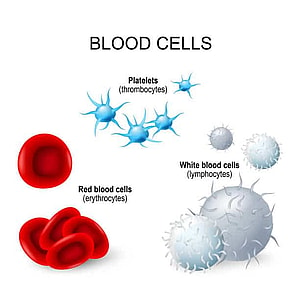
...symptoms of pulmonary embolism can include:[1][2][3][4][7] Coughing, including coughing up blood Feelings of anxiousness Low blood pressure, also known as hypotension Fever Fainting Painful leg swelling, if the cause is...

...with blood type A will be either A-positive or A-negative. This blood type will determine which blood is safe for the patient. Patients with blood type A can only receive...

...a complete blood count. Read more about a complete blood count » White blood cell count FAQs Q: What is a healthy white blood cell (WBC) count? A: For an adult, a...

...Complete blood count (CBC) The complete blood count (CBC) concentrates on the three types of blood cells: white blood cells (WBCs), red blood cells (RBCs), and platelets. By measuring the...

...Coughing Chest tightness Shortness of breath Usually, these symptoms will be:[2] Recurrent At their most severe first thing in the morning and/or at night Present, or worse, in relation to...

...indicates unseen blood, and macrohematuria, in which the blood is visible to the eye. High blood pressure: Hypertension, which results from the disruption of kidney function, may also occur. High...

...The blood may also be obtained from blood banks, which hold different types of blood for future use. Blood drawn from recognized banks and health care facilities go through very...

...modified include:[3][10] Smoking Physical inactivity Being overweight High blood levels of LDL cholesterol Low blood levels of HDL cholesterol Diabetes and/or high blood glucose levels and/or insulin resistance High blood...

[trp_language language=”en_US”] Ischemic stroke? Ischemic stroke occurs most often when a blood vessel supplying blood to the brain is blocked or obstructed by a blood clot or fatty deposit or...

...person shows initial signs of choking and coughing and will then subsequently begin to display other respiratory symptoms, such as wheezing or recurrent coughing.[2][3] However, in the most severe cases,...









